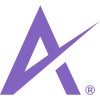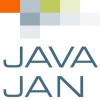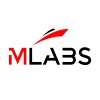SaaS
Software as a Service (SaaS) is a software delivery model where applications are hosted and managed by a third-party provider and made available to users over the internet. In the SaaS model, users can access software applications through a web browser without the need for installation or maintenance on their local devices.
SaaS applications are typically subscription-based, with users paying a recurring fee to access the software and related services. This model offers several benefits, including ease of scalability, automatic updates, and lower upfront costs compared to traditional software licensing models.
SaaS platforms cover a wide range of applications, including customer relationship management (CRM), enterprise resource planning (ERP), collaboration tools, project management, and marketing automation, among others. These applications cater to various business needs and can be customized or configured to fit specific requirements.
SaaS has become increasingly popular in modern business environments, enabling organizations to adopt and utilize software solutions with minimal infrastructure investments and rapid deployment. It also allows for remote access to applications, facilitating collaboration and flexibility in work environments.
Overall, SaaS offers a convenient and cost-effective approach to software deployment, providing businesses and individuals with access to a wide range of applications and services without the complexities of traditional software management.
For more information on SaaS, you can explore industry resources, whitepapers, and official websites of leading SaaS providers.
























